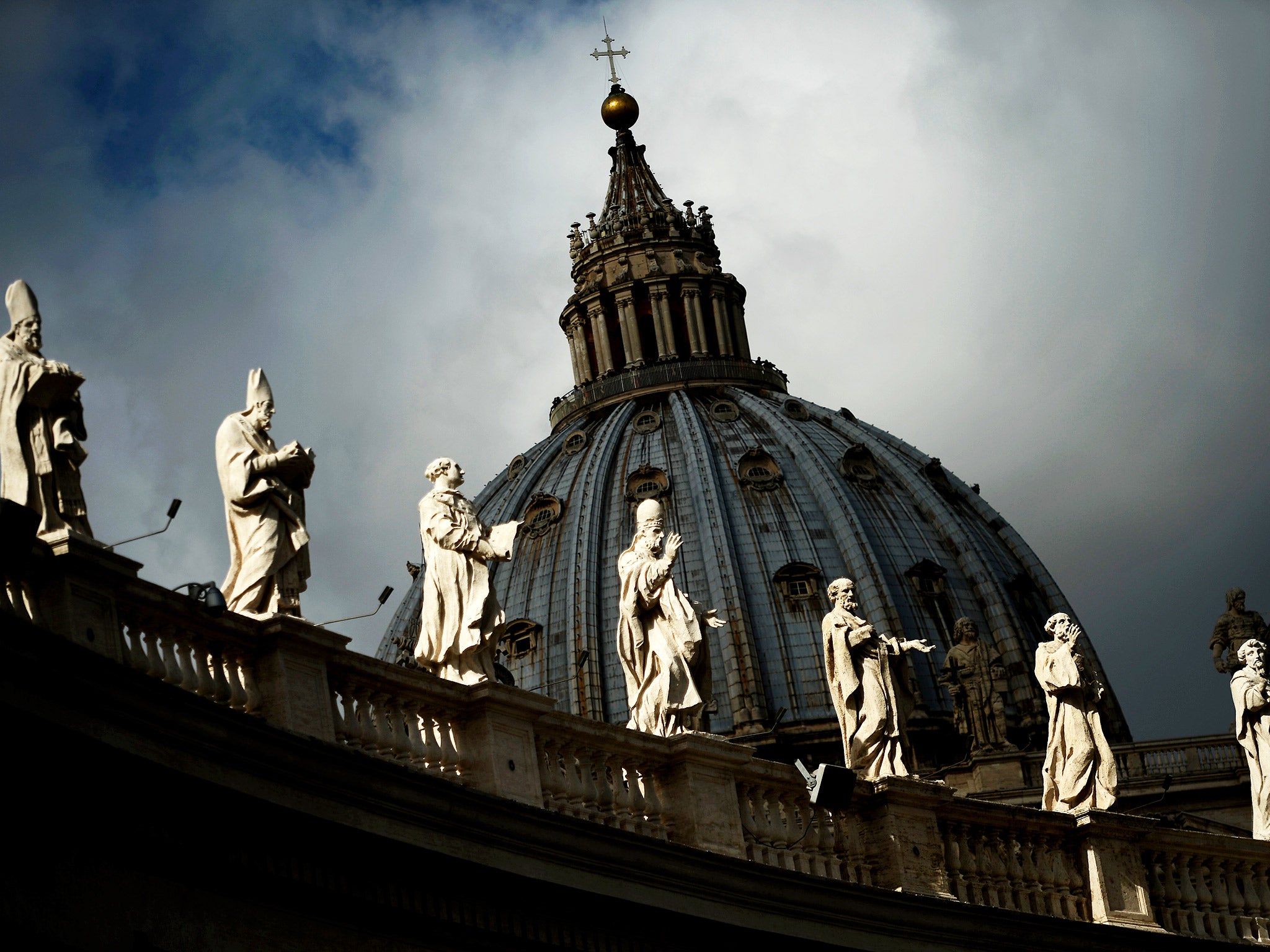Pope’s merchant bank faces money laundering accusations after investigation
Pope Francis sanctioned the probe as part of his drive to clean up the Holy See after decades of financial sleaze

Vatican investigators have accused the shadowy organisation known as the Pope’s merchant bank of money laundering, insider trading and market manipulation, it has emerged.
Details of the alleged crimes committed by the institution, the Administration of the Patrimony of the Holy See (APSA), said to have been between 2000 and 2011, have been passed to authorities in Italy and Switzerland. Investigators say the illicit activity involved bank accounts held in these countries.
Pope Francis sanctioned the probe into APSA as part of his drive to clean up the Vatican after decades of financial sleaze. The Vatican Bank, the Institute for Religious Works (IoR), has often figured in previous scandals. Italian prosecutors involved in a long-running investigation claimed that the IoR had operated in Italy without authorisation for 40 years.
But concerns have also centred on APSA, which as well as paying the Vatican’s salaries looks after its property, financial and share holdings. The 33-page report by the Vatican Financial Information Authority focuses on a “portfolio” worth more than €2m (£1.5m) sent to Switzerland shortly before the Vatican introduced new laws against money laundering.
News of the investigation follows this week’s launch of two books based on leaked Vatican documents. One of the books, Merchants in the Temple by Gianluigi Nuzzi, claims that Vatican officials raise huge sums through fees and other charges levied for elevating candidates to sainthood, with the average price for a beatification around €500,000 (£375,000).
Vatican spokesman Father Federico Lombardi said that Pope Francis had introduced reforms to deal with such malpractice. But La Repubblica newspaper attacked the spending of senior Vatican officials, including Francis’s finance chief Cardinal George Pell who, it says, has spent thousands on business-class trips and luxury furnishings, rather than taking an axe to waste.
Join our commenting forum
Join thought-provoking conversations, follow other Independent readers and see their replies
Comments
Bookmark popover
Removed from bookmarks